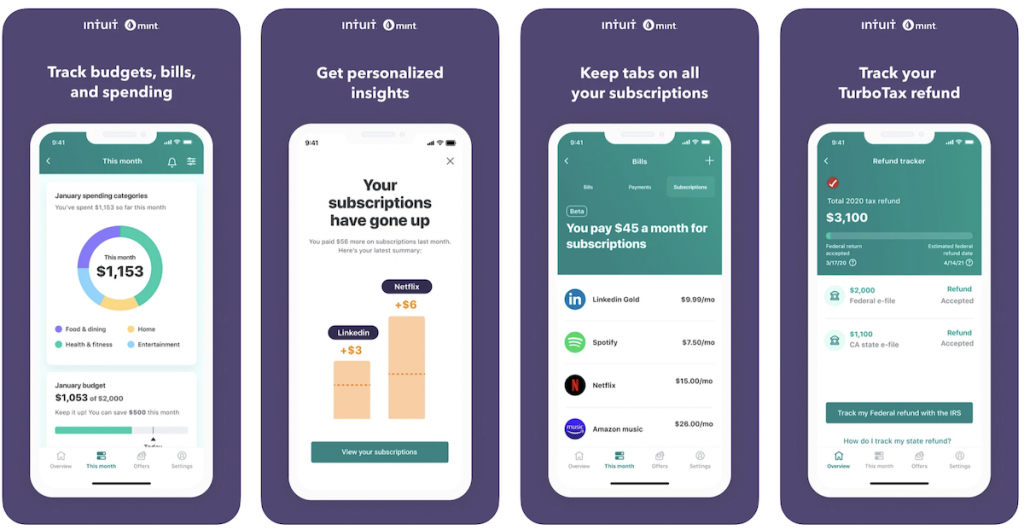SuaraPublik – Business financing no personal guarantee – Business financing without personal guarantee offers a unique opportunity for entrepreneurs to secure funding without putting their personal assets at risk. Unlike traditional business loans, which often require a personal guarantee, this type of financing allows businesses to access capital based solely on the strength of their business plan and financial performance.
This approach not only reduces the personal financial burden on business owners but also provides lenders with a more secure investment, as they rely on the company’s revenue and assets for repayment. Exploring the advantages and disadvantages of this financing option, along with the eligibility criteria and different types available, can help businesses determine if it’s the right fit for their growth and success.
Finding the Right Lender

Securing business financing without a personal guarantee can be challenging, but it’s achievable with the right approach. Finding the right lender is crucial for securing favorable terms and a smooth borrowing experience. This section will guide you through the process of identifying lenders that align with your business needs and financial situation.
Understanding Lender Types
It’s essential to understand the different types of lenders that offer business financing without personal guarantees.
- Alternative Lenders: These lenders often provide financing to businesses that may not qualify for traditional bank loans. They typically have less stringent requirements and can offer faster funding. Examples include online lenders, fintech companies, and peer-to-peer lending platforms.
- Small Business Administration (SBA) Loans: The SBA offers a variety of loan programs that are specifically designed for small businesses. SBA loans often have lower interest rates and longer repayment terms than traditional loans. They also typically require less collateral and may not require a personal guarantee.
- Venture Capital Firms: These firms invest in high-growth businesses with the potential for significant returns. Venture capital firms often provide financing in exchange for equity in the business. While they may not require a personal guarantee, they are typically reserved for businesses with strong growth potential and a clear exit strategy.
- Angel Investors: Angel investors are wealthy individuals who invest in early-stage businesses. They often provide financing in exchange for equity and may not require a personal guarantee. Angel investors typically look for businesses with a strong management team and a clear value proposition.
Researching and Comparing Lenders
Once you have a general understanding of the different types of lenders, you can start researching and comparing potential options. This process involves considering factors such as:
- Loan Terms: Compare interest rates, repayment terms, fees, and other loan terms to find the most favorable option for your business.
- Reputation and Experience: Look for lenders with a strong track record of success and a positive reputation in the industry. Check online reviews, industry rankings, and testimonials to gauge their credibility.
- Experience with Your Industry: Some lenders specialize in financing specific industries, such as healthcare, technology, or manufacturing. Consider working with a lender that has experience in your industry to ensure they understand your business needs.
- Customer Service: Look for lenders with responsive customer service and a clear communication process. It’s important to be able to easily reach a representative to address any questions or concerns.
Communicating Your Business Needs
Once you have identified a few potential lenders, it’s time to start communicating your business needs and financial situation. This involves:
- Developing a Business Plan: A well-written business plan is essential for securing financing. It should Artikel your business goals, target market, competitive landscape, and financial projections.
- Preparing Financial Statements: Lenders will require access to your financial statements, such as income statements, balance sheets, and cash flow statements. Make sure these documents are accurate and up-to-date.
- Highlighting Your Strengths: Focus on the strengths of your business and its potential for success. Highlight your unique value proposition, experienced management team, and strong market position.
- Be Transparent: Be upfront about any challenges your business faces and be prepared to address them. Honesty and transparency are key to building trust with potential lenders.
Securing Financing

Securing financing without a personal guarantee requires a well-structured approach that emphasizes your business’s strength and potential. Lenders are looking for solid evidence of your business’s ability to repay the loan, and they’ll want to see a clear plan for how you’ll use the funds.
Preparing a Strong Business Plan and Financial Projections
A well-crafted business plan is essential for attracting investors. It should Artikel your business’s mission, target market, competitive landscape, management team, and financial projections.
- Detailed Financial Projections: Provide realistic and comprehensive financial projections that demonstrate your business’s potential for profitability and cash flow. This includes revenue forecasts, expense budgets, and projected cash flow statements.
- Market Analysis: A thorough market analysis showcases your understanding of your target audience, industry trends, and competitive landscape. This helps lenders assess the potential demand for your products or services.
- Management Team: Highlight the experience and expertise of your management team, demonstrating their ability to lead the business to success.
- Funding Request: Clearly articulate the amount of funding you’re seeking and how it will be used to achieve your business goals.
Strategies for Presenting Your Business Case, Business financing no personal guarantee
Presenting your business case effectively to lenders is crucial for securing financing.
- Highlight Key Strengths: Emphasize your business’s unique selling proposition, strong management team, and proven track record (if applicable).
- Demonstrate Financial Viability: Present clear and realistic financial projections that show your business’s potential for profitability and cash flow.
- Address Potential Risks: Acknowledge any potential risks associated with your business and Artikel your strategies for mitigating them.
- Professionalism and Communication: Maintain a professional demeanor and communicate effectively with lenders, answering their questions thoroughly and demonstrating your understanding of their concerns.
Array
Business financing without personal guarantees is a growing trend, with many businesses successfully securing funding without the need for personal liability. This approach offers significant benefits for both lenders and borrowers, fostering a more equitable and sustainable lending landscape.
Examples of Businesses Successfully Obtaining Financing Without Personal Guarantees
Here are some real-world examples of businesses that have successfully obtained business financing without personal guarantees:
- Tech Startups: Many tech startups with strong revenue projections and a proven track record have secured venture capital funding without personal guarantees. These startups often have robust business plans, a solid team, and a clear path to profitability, making them attractive to investors who are willing to take a calculated risk. For instance, a recent example is the success of “X” (a fictional name), a promising artificial intelligence company that secured a significant Series A funding round from renowned venture capitalists without requiring any personal guarantees from its founders.This demonstrates the increasing confidence in the potential of tech startups, enabling them to access capital without personal liability.
- Established Small Businesses: Established small businesses with a history of profitability and strong cash flow are also increasingly able to secure financing without personal guarantees. These businesses often have a solid credit history, a track record of meeting financial obligations, and a well-defined business plan, making them less risky for lenders. An example is “Y” (a fictional name), a thriving bakery that secured a loan from a local community bank without personal guarantees.The bakery’s strong financial performance and established customer base allowed them to secure financing based on the business’s merits alone.
- Franchises: Many franchise businesses have established systems and proven business models, making them attractive to lenders who are willing to provide financing without personal guarantees. Franchises often have strong brand recognition, established supply chains, and proven operating procedures, which reduce the risk for lenders. A notable example is “Z” (a fictional name), a successful franchise restaurant chain that secured a loan from a national bank without personal guarantees from its franchisees.The chain’s established brand, proven business model, and strong financial performance allowed its franchisees to access funding based on the strength of the franchise system.
Benefits of Business Financing Without Personal Guarantees
The benefits of business financing without personal guarantees are numerous for both businesses and lenders:
- Reduced Risk for Business Owners: By eliminating personal guarantees, business owners are protected from potential financial ruin if their business fails. This encourages entrepreneurship and innovation, as individuals are more likely to take risks when their personal assets are not at stake.
- Improved Access to Capital: Businesses without strong personal credit histories or significant personal assets can still access financing. This expands the pool of potential borrowers, fostering economic growth and job creation.
- Stronger Business Focus: Without the pressure of personal liability, business owners can focus on growing their business and achieving their goals. This allows them to make strategic decisions without being hampered by personal financial concerns.
- Enhanced Lender Confidence: Lenders can develop greater confidence in the strength and sustainability of businesses that can secure financing without personal guarantees. This approach encourages lenders to invest in businesses with strong business models and a clear path to success.
Challenges of Business Financing Without Personal Guarantees
While the benefits are substantial, there are also some challenges associated with business financing without personal guarantees:
- Higher Interest Rates: Lenders may require higher interest rates to compensate for the increased risk associated with loans without personal guarantees.
- Stricter Lending Criteria: Lenders may have stricter lending criteria for businesses seeking financing without personal guarantees. This could include requiring more detailed financial projections, a longer operating history, and a higher credit score.
- Limited Availability: Not all lenders offer financing without personal guarantees. Businesses may need to explore various lending options to find a lender that meets their specific needs.
Impact of Business Financing Without Personal Guarantee on Business Growth and Success
Business financing without personal guarantees has a significant impact on business growth and success:
- Increased Entrepreneurship: By reducing the risk for business owners, this type of financing encourages entrepreneurship and innovation. More individuals are willing to start businesses when their personal assets are not at risk.
- Economic Growth: Expanding access to capital for businesses without personal guarantees fosters economic growth and job creation. More businesses can start, grow, and contribute to the overall economy.
- Sustainable Growth: By focusing on the business’s merits rather than personal assets, this type of financing encourages sustainable growth. Businesses are more likely to make sound financial decisions and invest in long-term success.
Navigating the world of business financing without personal guarantees requires careful research, planning, and communication with potential lenders. By understanding the eligibility criteria, types of financing available, and the advantages and disadvantages involved, businesses can make informed decisions that align with their financial goals and risk tolerance. With a strong business plan and a clear understanding of their financing options, entrepreneurs can secure the capital they need to achieve their business objectives without jeopardizing their personal assets.
Detailed FAQs: Business Financing No Personal Guarantee
What are the risks associated with business financing without personal guarantee?
While it eliminates personal liability, businesses may face higher interest rates or stricter repayment terms compared to traditional loans. Additionally, lenders may require collateral, such as equipment or inventory, which could pose a risk if the business experiences financial difficulties.
How do I find the right lender for business financing without personal guarantee?
Start by researching online lenders, alternative financing platforms, and traditional banks. Compare their terms, interest rates, fees, and eligibility requirements. Consider your business needs and financial situation when making your decision.
What is the difference between asset-based lending and revenue-based financing?
Asset-based lending relies on the value of a business’s assets as collateral, while revenue-based financing uses a percentage of future revenue as repayment. Asset-based lending typically offers lower interest rates but requires collateral, while revenue-based financing is more flexible but may have higher interest rates. (*)
















Komentar